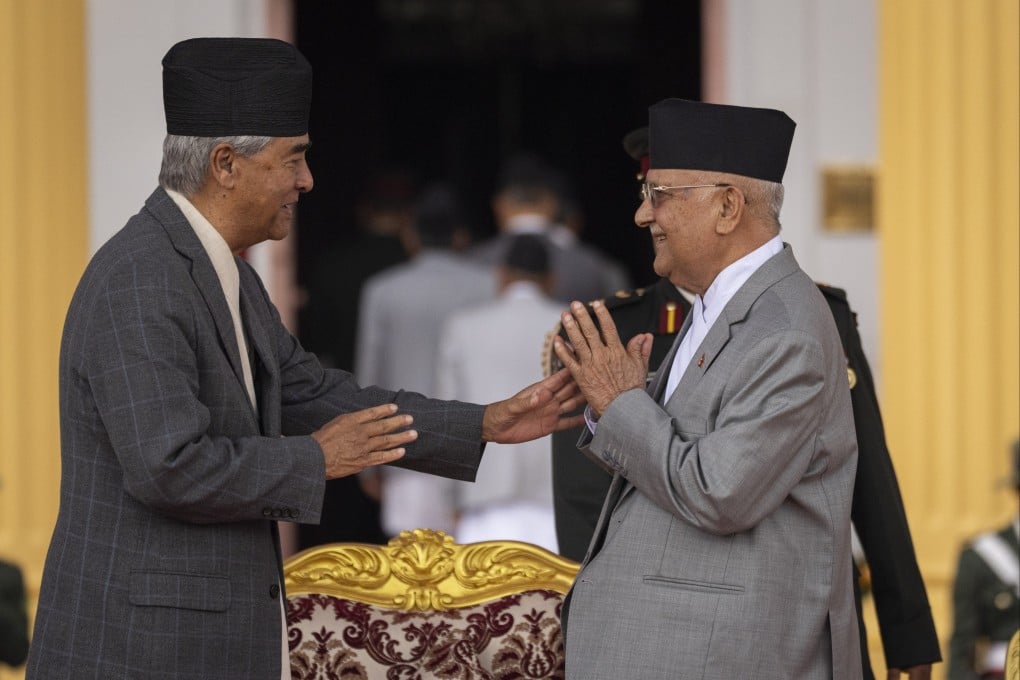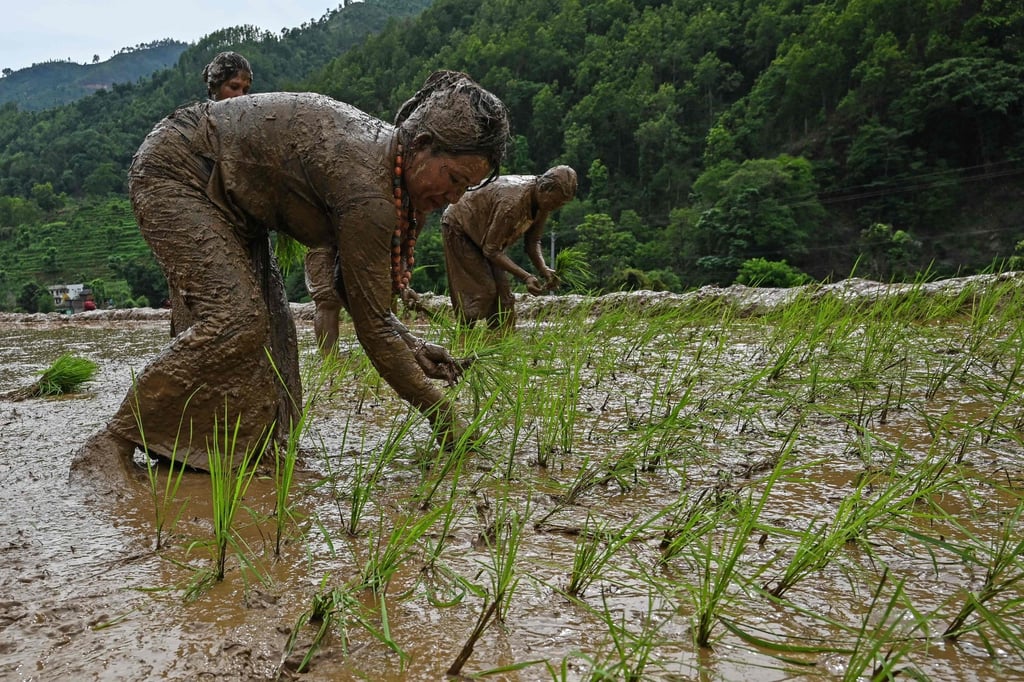Nepal’s political shift complicates its India-China balancing act
- With a new government in place, questions arise over how Nepal will manage relations with its two powerful neighbours

Prime Minister Pushpa Kamal Dahal, popularly known as Prachanda, was removed from office earlier this month after his Communist Party of Nepal (Maoist Centre) failed to secure a confidence vote in parliament.
His former coalition partner, Communist Party of Nepal (Unified Marxist–Leninist) chairman K.P. Sharma Oli, was sworn in as Nepal’s new leader on July 15 – with backing from the largest party in the House of Representatives, the Nepali Congress led by Sher Bahadur Deuba. On Sunday, Oli secured overwhelming support in parliament with more than two-thirds of members voting in his favour.
Oli, like Prachanda before him, is known for maintaining close ties with Beijing. However, the backing of Deuba’s party gives the new government a more India-leaning tilt – raising questions about how Nepal will manage its relationships with its two immediate and influential neighbours.
“The main problem is local, on the economic side,” said Bipin Adhikari, a professor of law at Kathmandu University, stressing more pressing issues at home. “Nepal has been suffering from instability for a long time. At least with this government, in the political sense, there will be some stability.”

Nepal’s government is its third in two years since elections to the lower house of parliament were held in 2022.
